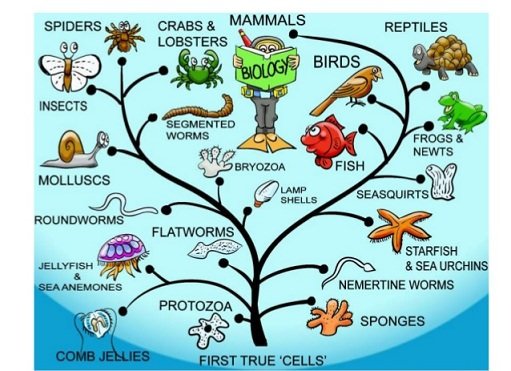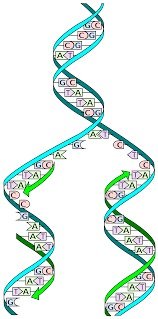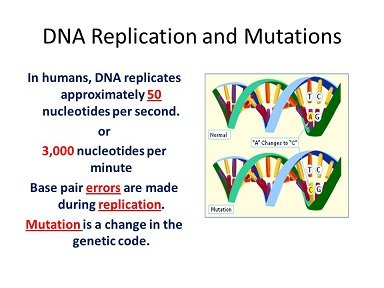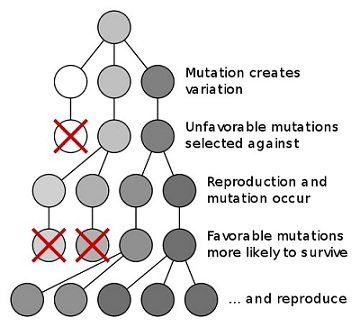Evolution, as it relates to the history of living things, is one of the grossly misunderstood aspects of our lives; and that is because no one lived through history. We are limited in information, but we can draw inferences majorly; among others; from "archeology (including fossil records), oral tradition, and written record.
Let us take a quick review on these concepts as it relates to evolution.

Before I continue, I would love to point out that evolution does not necessarily tell us objectively how life began, but it helps us to understand the existence of life and the diversification of life form into what we know presently. Evolution also helps us to understand how present day creatures have adapted over time.
Did I define evolution? Well to the uninitiated, here's a simplified defined of evolution:
Evolution is the alteration in traits of specie which is inherited over subsequent generations. - Simplified from here.
From this definition; the "trait" used in this context covers both the physical and instinctive traits.
Dynamics of Evolution
Let us take a look at how evolution works: Like we all know it, all living things have the ability to reproduce (at least, that's one of the characteristics of living things). This reproduction is just like making copies of ourselves, which is done by the duplication of DNA; which is also passed down to subsequent generations.

We all know what DNA is, so I wouldn't bore us with long explanations. The reproduction of unicellular organisms, taking amoeba as an example, is done by the process of binary fission (where the DNA is copied in their guts, then separated, and the amoeba would split in halves, which would grow to full size). In theory, the split halves should be perfect replication of each other, but nature does not work that way.
That is where "DNA mutation" comes into play. When copies of DNA are replicated, there is usually a mutilation in some of the DNA codes, which would result in the production of variant species. And these mutations would be passed on to subsequent generations, and that's called "evolution" (remember the definition I gave earlier).
But reproduction for complex organisms, like humans, are somewhat different, because we reproduce sexually and not by binary fission. During the process of sexual reproduction, a sperm cell (containing copy of DNA) combines with the ovum (also containing copy of the DNA) to create an entirely new cell with a variant set of DNA instruction; thus creating a unique offspring. These offspring, though similar to their parents, are slightly different, due to the combination of DNA instructions from both parents (that could explain why @samminator is tall like his father, but fair like his mother). Remember, these changes in DNA instructions are passed on to subsequent generations.

I won't also have you ignorant of the fact that; these offspring could also develop an entirely new trait that was not present in their parents, and this is a resultant effect of DNA mutations.
Is evolution random or sequential?
We have observed the trend of these evolutions, and can infer that these micro changes picked up by the immediate generation can be summed up over multiple subsequent generations to create some powerful changes.
A perfect example of this is the changes that created the present day dogs. Taking a trail down history's memory lane, you would discover that the present day dogs evolved from an ancestral descent of Gray Wolves. The trans-generational evolutionary trend of these ancient gray wolves was guided; as it were; by human, through carefully selecting and cross-breeding wolves with desired trait.
The process was repeated over time until we arrived at this present day variation of dogs. Following this pattern, you would infer that the ancestral gray wolves evolved into very many different species of modern dogs, as seen in the diagram below.

But also drawing inference from observable evidences, it can be said that all living things share a common ancestry. That means, drawing our history lane very far, you would agree with me that we are all related. But because of variation in DNA codes during reproduction; over these numbers of years, new species have emerged. But this also needs to be guided through the process of evolution, which a factor known as "natural selection" is a major determinant.
Natural Selection was proposed by Charles Darwin and can be seen in his book: Origin of species, which has explained why the best fitted has been seen to survive the trend of evolution.

Conclusion
One of the major misconceptions behind evolution is the fact that some people have viewed it as just a theory. But that something is theorized does not make it fictional or false. Remember, a theory, scientifically, is a collection of related hypothesis, which is actually based on facts.
So with these facts presented, you would infer that everything, though with a common ancestry, has various trends of evolution; which explains why we have very many different types of species alive today.
In other words, every living organism is related.
So the next time you want to eat that carrot, just remember that it is actually related to you :DThanks for reading
References for further reading: Ref1, Ref2, Ref3, Ref4, Ref5


gif by @foundation
Lol awesome read bro steem on
Thanks man
Interesting article @samminator,
The conclusion of your post that we are related to every living organism was briefly expantiated in of my posts, we are not only related to living but share a lot with non living substances.
I'd be glad if you check it out.
To my question, do you think there is a possibility to have further evolution of animals, especially of our species where we could be having maybe people with purple skin and tall as the sky(the bible recorded very tall giants once existed)?
Well, nothing is impossible. Also remember that the process of evolution can be altered and influenced by some other non-natural factors.
Thanks for the comment
You have a nice collection here. Thoery of evolution may not be totally true but it contains many truth. Many people uses it as the bases for any conclution
Thanks a lot for dropping by bro
Evolution is a fascinating process, and it really helps us understand the living world that surrounds us.
Evolution relies on there being genetic variation? in a population which affects the physical characteristics (phenotype) of an organism.
Some of these characteristics may give the individual an advantage over other individuals which they can then pass on to their offspring.
great work
Well said. Thanks